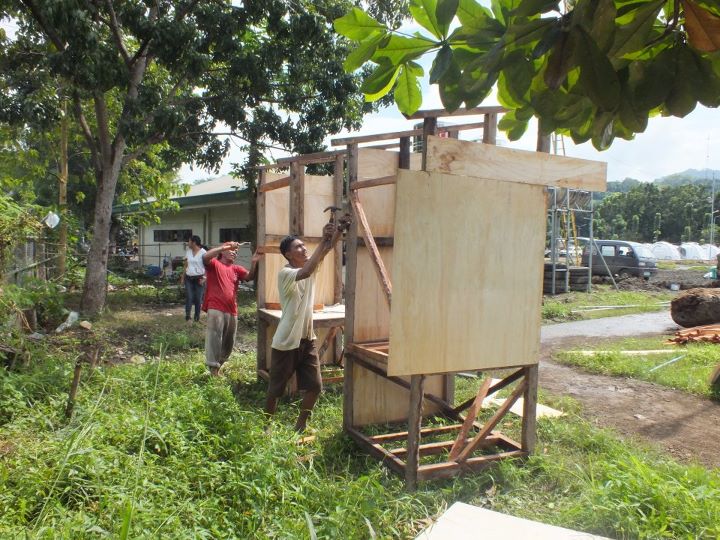Elmer Sayre of WAND Foundation today sent us the following update from Cagayan de Oro City and Iligan Cities, Philippines where a small team of volunteers quickly set up urine diversion dehydration toilets (UDDTs) as emergency response after a recent typhoon.
As Elmer reports:
“Typhoon Sendong was so severe and fierce, hitting at 2 a.m. when most people were asleep, erasing in the map entire communities, scattering the living in various evacuation centers and open spaces. When the water system of Iligan and Cagayan de Oro cities was damaged and most flush toilets in the affected areas were wiped-out, the ecosan* solution is left as one of the most viable options. I asked support from friends and classmates and social network acquaintances and built and deployed portable ecosan toilets focusing mainly on the evacuation centers housing 7,000-12,000 people.”

“When we started on the 21st December, 3 days after the typhoon, the stench of human feces in the evacuation centers were too much and fecal matter is everywhere. Now we have contained it and we are racing against time to build some more units especially for people living scattered around open spaces without sanitation facilities. Our team do constant monitoring and collection of human waste and store it in our facilities in Libertad to be processed later on as fertilizer for coconut trees.”

“We are doing well and in fact, today, a Swiss humanitarian aid agency asked us to supply them with 35 portable ecosan toilets for evacuation centers in Iligan city.”
For more information on Elmer’s work, please see these two documentations “Philippines Flashflood Documentation” (PDF; 0.9 MB) and “Briefer Ecosan Wand” (PDF; 0.4 MB) or feel free to directly contact WAND Foundation on their website.
*ecosan => here: Urine diversion dehydration toilets (UDDTs)
This is a cross-post which initially appeared on the SuSanA working group 8 blog on “Sustainable Sanitation in Emergency and Reconstruction“.

Nice post. Thanks for sharing. I hope that preventative measures can be put in place soon. One thing that can be done which costs nothing is each individual take responsibility for their garbage and put it where it belongs instead of throwing it all over the streets, rivers, and everywhere else.